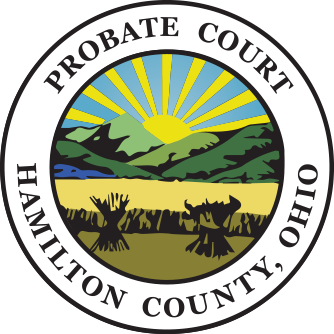- ADOPTIONS
- BIRTH CORRECTION
- BIRTH REGISTRATION
- CIVIL COMMITMENT
- CIVIL PROCEEDINGS
- CONSERVATORSHIP
- CUSTODIAL ACCOUNTS
- DELIVERY OF MINOR FUNDS
- DECLARATION OF PATERNITY
- DISINTERMENT
- ESTATE ADMINISTRATION
- GUARDIANSHIP
- MINOR SETTLEMENT
- ADULT WARD SETTLEMENT
- NAME CHANGE
- TRUSTS
- WILL DEPOSIT
- INVOLUNTARY TREATMENT FOR ALCOHOL & DRUGS ;
Instructions for Estate Administration
Do you have questions about Estate Administration? Click here to scroll to the FAQs.
Informational Pamphlet
Complete form packets for Estate Administration
Below are pdf packets that contain all the forms required. Click to download.
Individual Forms for Estate Administration
The following are a collection of the individual forms one may need for all case types.
Frequently Asked Questions
Questions can arise while you are looking for the content that you need. The following are common questions that have often been posed to our office.
Does A Fiduciary Need An Attorney?
Due to the complexity of the law and the legal process that is involved in estate administration, the Probate Court strongly recommends that all fiduciaries seek legal counsel. Good legal advice and guidance can expedite the probate process, prevent costly errors, and insure that the fiduciary is not cited by the Probate Court for the failure to properly perform his or her duties, or sued by beneficiaries for malfeasance.
What Are The Steps In A Full Administration?
All estates are not alike, and can differ for a number of reasons. An estate may be testate (with a Will) or intestate (without a Will). The nature, and ownership of assets can vary and so too does the procedure for transferring those assets. Next of kin vary and so do very important notice requirements. Sometimes the fiduciary must address issues of spousal rights or even issues of insolvency where the estate's debts exceed the estate's assets. Because of these differences, each estate is treated differently.
- As a general matter, the basic steps of administering an estate pursuant to Ohio law is as follows:
- Application for Authority to Admit the Will to Probate, if one exists, and for Authority to Administer the Estate;
- Appointment of a fiduciary;
- Gathering assets and obtaining appraisals as required;
- Filing an inventory in a timely manner;
- Determining debts, the sufficiency of assets and the payment of creditors;
- Timely filing of income tax returns, the Ohio Estate Tax return and the payment of taxes, if any;
- Distribution of assets to beneficiaries;
- Closing the estate by timely filing a final account or certificate of termination.
What Is A Relief From Administration?
A Relief from Administration is less complicated and may be completed more quickly than a full administration. If the estate asset is real property, however, you should consult with an attorney to avoid any costly errors.
If a decedent's date of death is on or after March 18, 1999, if the decedent's creditors will not be prejudiced and the probate estate consists of property with a gross value of $35,000, or less, the estate may be released from administration. When the surviving spouse is the sole beneficiary, and the probate estate consists of property with a gross value of $100,000, or less, the estate may be released from administration.
What Is A Summary Release From Administration?
A Summary Release from Administration is the least complicated Estate Administration. This procedure is designed to reimburse the individual who has paid or is obligated to pay the funeral bill.
If a decedent's date of death is on or after August 28, 2000, there is an estate administration procedure called a "Summary Release from Administration".This procedure is available if the estate assets do not exceed $45,000, and the applicant is the decedent's surviving spouse, who has paid the funeral bill or is obligated to do so, and who is also entitled to the entire allowance for support.
This procedure is also available where the applicant is not the surviving spouse, has paid or is obligated in writing to pay the decedent's funeral and burial expenses, and the value of the estate assets is the lesser of: $5,000 or the amount of the decedent's funeral and burial expenses.
 >
>